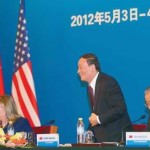US Citizenship For Sale: Foreign Investors Flock United States
Eduardo Saverin, Facebook co-founder, drew public attention and ire last month following the revelation that he had renounced his U.S. citizenship, a move widely seen to dodge taxes. Yet thousands of wealthy foreigners are lining up to replace him, making investments here and putting themselves on a path to citizenship in the process.
The State Department expects to issue over 6,000 "investor visas" in the current fiscal year, which would break records.
Under the government's EB-5 Immigrant Investor program, foreign investors can get conditional visas that allow them and their families to live, work and attend school in the U.S. To qualify for the visa, they must invest at least $1 million in a new or recently created business, or $500,000 for businesses in rural or high-unemployment areas.
The investment must have created or preserved at least 10 full-time jobs for U.S. workers within two years. Assuming this condition is met, investors and their families gets permanent resident status, and can apply for full U.S. citizenship three years later.
While the EB-5 program has been around since 1990, demand has been surging recently, fueled in large part by China's growing elite, who accounted for 70% of the roughly 3,500 investor visas issued last year. State Department officials expect the program's quota of 10,000 visas per year, including visas awarded to the spouses and children of investors.
Some critics of the U.S. program question the fairness of allowing affluent immigrants pay for special treatment, while others say investments and job creation claims need stricter vetting.
Immigrants who arrive via the program have no guarantee of recovering their investments, and may face deportation if they don't produce the required number of jobs. Of the roughly 12,000 immigrants who've arrived on the EB-5 investor visa, just 39% have earned permanent residency, according to USCIS data.
There's also the lengthy application and approval process — a study in 2005 by the Government Accountability Office revealed that the program's reputation for red tape had discouraged foreigners.
